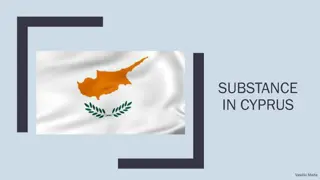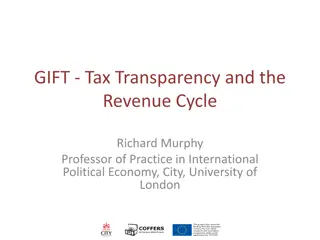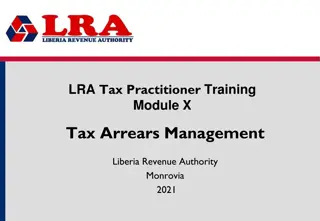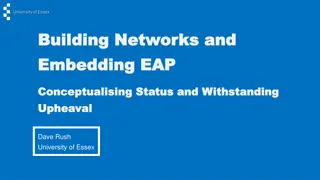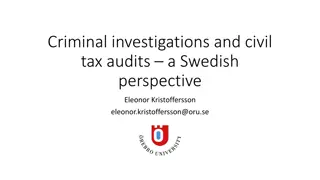Turkey's Tax Amnesty Law: Restructuring and Benefits Explained
The Amnesty Law in Turkey, Law No: 7143, outlines provisions for restructuring tax receivables, including penalties and interests, related to periods before March 31, 2018. Taxpayers have the opportunity to write off penalties by meeting specific payment conditions. The Law aims to provide relief and encourage compliance with tax obligations through favorable terms.
Download Presentation

Please find below an Image/Link to download the presentation.
The content on the website is provided AS IS for your information and personal use only. It may not be sold, licensed, or shared on other websites without obtaining consent from the author. Download presentation by click this link. If you encounter any issues during the download, it is possible that the publisher has removed the file from their server.
E N D
Presentation Transcript
Provisions Provisions of Amnesty Law Amnesty Law of Turkey Turkey Tax Tax LAW NO:7143 1
Recent Development Recent Development On May 18, 2018, the Law No. 7143 on the Restructuring of Tax and Certain Receivables and Amending Certain Laws ("Law") was published on the Official Gazette No.30425 and entered into force. This law establishes new rules for the restructuring of tax receivables including certain customs receivables. 2
What Does the Law Say? What Does the Law Say? The Law covers tax receivables related to the period before March 31, 2018(including March 31), the delay interest and tax penalties arising from these tax receivables, and other penalties not derived from an original tax. The Law does not include income tax installments to be paid after March 31, 2018 and advance taxes to be paid in 2018 through offsetting from income/corporate income tax, as well as second installments of the 2018 motor vehicle tax. 3
What Does the Law Say? What Does the Law Say? 1. Finalized Tax Receivables Tax receivables which are not paid on time and tax receivables whose payment period has not expired as of May 18, 2018 if; the taxpayer pays the original tax and the amount calculated based on monthly rates of the Producer Price Index ("PPI") until May 18, 2018 then, tax penalty and delay interests will be written off. the taxpayer pays 50% of a penalty which is not derived from an original tax or arising from participation and the amount to be calculated based on the PPI monthly rates until May 18, 2018, the remaining 50% of the penalty and the entire delay interests will be written off. 4
What Does the Law Say? What Does the Law Say? 2. Tax receivables that are not finalized or are in litigation a) Tax assessments in litigation before first degree courts or whose deadline for filing a lawsuit did not expire as of May 18, 2018 If the taxpayer pays 50% of the original tax and the amount to be calculated on 50% of the original tax amount based on the PPI monthly rates until May 18, 2018 and the remaining 50% of the original tax amount, the entire tax penalty including delay interests and other penalties arising from the original tax and delay interests related to these penalties will be written off. Taxes under reconciliation, taxes where the reconciliation date is undetermined or cannot be reached and the deadline for filing a lawsuit has not expired fall within the scope. 5
2. Tax receivables that are not finalized or 2. Tax receivables that are not finalized or are in litigation are in litigation b) Tax assessments whose deadline for filing an appeal or objection did not expire, are in appeal, in correction of decision, or the deadline for the correction of mechanism did not expire When the first degree court cancels the tax assessments, if the taxpayer pays 20% of the original tax and the amount to be calculated on 20% of the original tax amount based on the PPI monthly rates until May 18, 2018, the remaining 80% of the original tax, delay interests and the entire tax penalty (for penalties not derived from an original tax if 10% of the penalty is paid, the remaining 90%) will be written off. When the first degree court approves the tax assessments, if the taxpayer pays 20% of the original tax and the amount to be calculated on 20% of the original tax amount based on the PPI monthly rates until May 18, 2018, the remaining 80% of the original tax, delay interests and the entire tax penalty (for penalties not derived from an original tax if 50% of the penalty is paid, the remaining 50%) will be written off. When the Council of State or the Regional Administrative Court reverses the first degree decision, if the taxpayer pays 50% of the original tax and the amount to be calculated on 50% of the original tax amount based on the PPI monthly rates until May 18, 2018, the remaining 50% of the original tax, delay interests and the entire tax penalty (for penalties not derived from an original tax if 25% of the penalty is paid, the remaining 75%) will be written off 6
3. Taxes under tax inspection or asses 3. Taxes under tax inspection or assess sment ment Tax inspections and assessment that were started but are not completed until May 18, 2018 will be carried out. Once these tax assessments are completed, If the taxpayer pays the first 50% of the original tax amount and the amount to be calculated on 50% of the original tax based on the PPI monthly rates until May 18, 2018 the remaining 50% of the original tax, delay interests and the entire tax penalty (for penalties that do not derive from an original tax if the 25% of the penalty is paid, the remaining 75%) will be written off. 7
4. Tax/tax base increase mechanism 4. Tax/tax base increase mechanism a) Corporate income tax base increase 2013 2014 2015 2016 2017 35% 30% 25% 20% 15% Corporate income tax inspection or assessment will not be conducted on taxpayers for the taxation period in which they increased their corporate income tax bases. The increased tax base will be subject to 20% of corporate income tax. This rate will reduce to 15% if the taxpayers 1) file their corporate income tax return in due time for the fiscal year of which they want to increase the corporate income tax base; 2) duly paid the taxes due; 3) do not benefit from the tax amnesty for tax receivables at the litigation stage or finalized tax receivables provided in the Law. 8
Corporate income tax base increase Corporate income tax base increase If the corporate income tax return exhibits that the company is operating at a loss, no tax base is created, or no corporate income tax return was filed, then the increased tax bases cannot be less than; 2013 2014 2015 2016 2017 TRY 36,190 TRY 38,323 TRY 40,701 TRY 43,260 TRY 49,037 b) VAT increase No VAT inspection or assessment will be conducted for VAT taxpayers for the taxation periods that they increased their VAT calculated in their VAT returns for each taxation period higher than; 2013 2014 2015 2016 2017 3.5% 3% 2.5% 2% 1.5% 9
5. Business records correction 5. Business records correction The Law allows taxpayers to correct their business records without excising any tax penalty or delay interests. a) Inventory, machinery, equipment and fixed assets not recorded in the company s books but are physically held in the enterprise In order to benefit from this provision, income and corporate income taxpayers should declare these assets to their tax office through an inventory list that exhibit market values until August 31, 2018. If those assets subject to an 18% general VAT rate, they should declare a 10% VAT through a reverse charge mechanism and paid over the declared value of the assets within the declaration period. If the assets are subject to a reduced VAT rate, the half rate of the reduced VAT rate should be used while calculating the VAT to be declared and paid. 10
5. Business records correction 5. Business records correction b) Recorded assets that are not physically present in the enterprise Income and corporate income taxpayers will have chance to correct their business records for their recorded assets that are not physically present in the enterprise by 1) issuing an invoice that contains the gross profit rate determined based on the current year's figures for the same type of commodity; and 2) fulfilling the related tax liabilities by August 31, 2018. c) Recorded cash balance and receivables from shareholders that are not present in the enterprise Corporate taxpayers can correct their business records about the cash balance and receivables from shareholders recorded in their balance sheet as of December 31, 2017, but which are not present in the enterprise by declaring them to their registered tax office by August 31, 2018. These amounts will be taxed at a rate of 3%. 11
6. Payment methods 6. Payment methods Taxpayers should apply to related tax office until July 31, 2018. With their application, they must pay the required amounts imposed, either at once or in a maximum of 18 equal installments (that will be paid on a bi-monthly basis) starting from September 2018. If taxpayers prefer to pay in installments, 6, 9, 12, or 18 installments options should be selected. The required amount will be multiplied by 6-Installment 9- Installment 12-Installment 18-Installment 1.045 1.083 1.105 1.15 If taxpayers pay the whole required amount in advance and in due time until September, 90% of the amount to be calculated based on the PPI monthly rates until May 18, 2018 will be written off. 12
7. Asset peace incentive 7. Asset peace incentive "Asset peace" related with the repatriation of undeclared assets without certain tax repercussions. It covers instruments in abroad, and instruments and immovables held in Turkey but not recorded in the legal books of taxpayers; and foreign income generated by resident individual and entities. a) Assets held abroad b) Assets in Turkey not recorded in legal books c) Exemption for foreign income capital market 13
Assets Assets in in abroa abroad d Individuals and legal entities can freely dispose their capital market instruments in abroad if they duly inform Turkish banks or intermediary institutions until November 30, 2018. No tax audit or assessment will be conducted on these assets Banks and intermediary institutions will excise 2% (is inapplicable if the assets are brought into Turkey until July 31, 2018) tax on these assets. They are responsible for declaring and paying the tax to tax office through a tax return until December 31, 2018. This tax cannot be recorded as an expense or be offset from other taxes. Losses arising from the disposal of assets brought into Turkey cannot be considered an expense or deduction for income and corporate income tax purposes. 14
Assets Assets in in abroa abroad d If the capital advances recorded in taxpayers legal books as of May 18, 2018 are compensated by bringing capital market instruments held abroad to Turkey before May 18, 2018, have a chance to benefit from the provision if the capital advances are removed from the legal book entries. Taxpayers who keep legal books in accordance with the Tax Procedure Law can include the assets brought into Turkey in their enterprise and can withdraw them from the enterprise without including them in the determination of their current income and or distributable income. In order to benefit from this provision, taxpayers should pay the taxes imposed on the declared assets untilthe due date; and must bring the assets into Turkey or transfer them into a Turkish bank/intermediary institution account within three months from the notification date. 15
Assets in Turkey Assets in Turkey but books books but not recorded in legal not recorded in legal Income and corporate income taxpayers can declare to the tax authorities their capital market instruments and immovables held in Turkey but not recorded in their legal books until November 30, 2018. No tax audit or tax assessment will be conducted on these assets. These assets can be recorded into taxpayers' legal books without being taken into consideration when determining their current income until November 30, 2018. They can also be withdrawn from the enterprises without including them in the determination of their taxable income or distributable income. The assets until to the tax authorities will be subject to a 2% tax (tax is inapplicable if the assets are recorded in the legal books by July 31, 2018 ) on the asset value, which must be paid by December 31, 2018. This tax cannot be recorded as an expense or be offset from other taxes and losses due to the disposal of assets recorded in legal books cannot be considered an expense or deduction for tax purposes. To take advantage of law, taxpayers must pay the taxes imposed on the declared assets until the due date. 16
Exemption for foreign income Exemption for foreign income Income derived from the sale of participation shares of entities whose legal and business center is not in Turkey; Participation income derived from entities whose legal and business center is not in Turkey; and Commercial income derived through a place of business or permanent representative abroad. Incomes mentioned above derived by Turkish resident individuals and entities, including those derived until October 31, 2018, are exempt from income and corporate income tax if transferred to Turkey until December 31, 2018. Income derived by Turkish resident individuals and entities from the liquidation of entities whose legal and business center is located outside of Turkey is exempt from income and corporate income tax if these are transferred to Turkey by December 31, 2018. 17
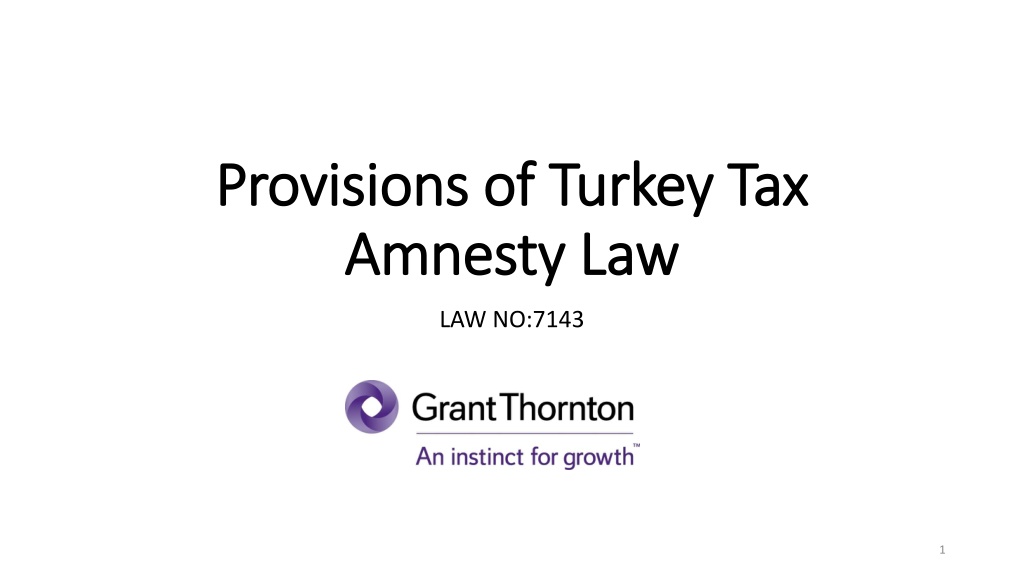


![Town of [Town Name] Real Estate Tax Rates and FY 2024 Budget Summary](/thumb/62211/town-of-town-name-real-estate-tax-rates-and-fy-2024-budget-summary.jpg)


